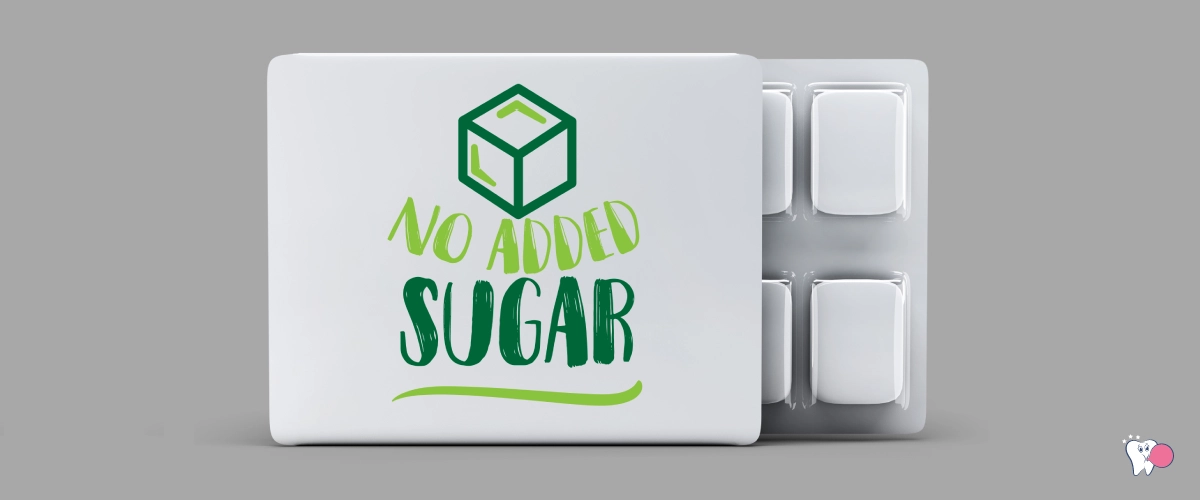Most of the chewing gums available on our market in the Czech Republic contain sugar. This is often considered harmful to teeth by dentists. While sugar-free gums are an option, not every sugar-free gum is healthier than the most commonly available cheapest gum. It is necessary to dedicate some time to the selection and monitor the ingredients in chewing gums (their composition). In simple terms, not every so-called “healthy gum” is truly healthy. They should not contain these controversial gum additives.
Why Sugar-Free Gums? | Sugar | Protection Against Tooth Erosion | Choosing Gums | Xylitol | Why Xylitol?
Sugar-Free Chewing Gums
Sugar-free gum contains no sugar. Sugar is replaced by sweeteners. Unlike gums with sugar, these gums take care of dental health (dental hygiene) – reducing the occurrence of cavities and limiting gum disease or respiratory infections (occurrence of middle ear inflammation).
Why Choose Sugar-Free Gums?
- Protection for teeth and gums
- Reduction of cavity formation
- Limited gum diseases
- Increased saliva production – natural defense against acid
Chewing sugar-free gum for at least 20 minutes helps protect teeth and gums between meals, when we don’t brush our teeth. Teeth are more vulnerable to acid attack after a meal, which is produced by plaque bacteria and sugars in our food and drinks. These slowly dissolve enamel, creating a hole or cavity that causes tooth decay. Chewing sugar-free gum helps mouths produce more saliva – a natural mouth defense against acid.
More details on when it’s best to chew can be found here > (this link will be available as soon as possible)
Sugar
It is among risk factors affecting our body. We enjoy eating sweet things. That’s why many of us cannot do without sugar. Sugar belongs to carbohydrates. The World Health Organization (WHO) recommends a maximum daily sugar intake of max. 90g. From a nutritional point of view, consuming larger amounts of sugar is risky. Sugar is present in many beverages and foods. Therefore, we should try, not at any cost, to limit the amount of sugar in our foods. Not only in adults but also in children, who have no inhibitions.
Guidelines from the World Health Organization (WHO) – sugar intake for adults and children. Global recommendations for the intake of free sugars to reduce the risk of non-communicable diseases (NCDs) – in adults and children, with a special focus on preventing and controlling unhealthy weight gain and tooth decay.
Protection Against Tooth Erosion
Sugar-free gums help against tooth erosion, caused by acids in food and drinks – such as citrus fruits, fruit juices, and fizzy drinks. These acids erode enamel and remove some minerals that make up enamel. Chewing sugar-free gum helps produce more saliva and thus reduce tooth erosion. Saliva then quickly replaces minerals. Chewing gum quickly reduces the amount of acid attacking the teeth.
Choosing Sugar-Free Gums
Sugar is often replaced by sweeteners. Not every sweetener is beneficial to the body, mouth, teeth, and gums. Some artificial sweeteners can even be more harmful (aspartame, acesulfame K) than sugar itself. The ideal choice, publicly known, is xylitol.

Xylitol
Xylitol is a natural sweetener. It is as sweet as sugar. It is usually produced from birch bark and is also found in some berries, fruits, vegetables, and fungi. The disadvantage of xylitol is that its production is more expensive. Therefore, healthy chewing gum sugar-free sweetend only with xylitol are a more expensive option. The advantage is that they are healthy and beneficial to teeth.
Why is it the best choice?
Xylitol is birch sugar, which falls into the category of alternative sweeteners suitable for health-conscious individuals. It is a “healthier choice” for teeth than sugar. Dentists recommend chewing gums with xylitol (Xylitol gums) after meals as an alternative tooth cleaning during the day when there is no time to brush teeth with toothpaste and a toothbrush.
It may help reduce the occurrence of tooth decay and even reverse cavities by aiding in the replacement of minerals in tooth enamel (confirmed by studies). It helps prevent the adherence of plaque bacteria to teeth.
More information on ferpotravina.cz (in czech language):
https://www.ferpotravina.cz/seznam-ecek/E967
Article Sources
- Sugar, its sources and effect on health – link to the website in Czech – https://www.vimcojim.cz/magazin/clanky/o-vyzive/Cukr,-jeho-zdroje-a-vliv-na-zdravi.-Vite,-kolik-cukru-denne-byste-meli-konzumovat__s20131x20222.html
- https://www.dentalhealth.org/sugar-free-chewing-gum
- https://www.who.int/

